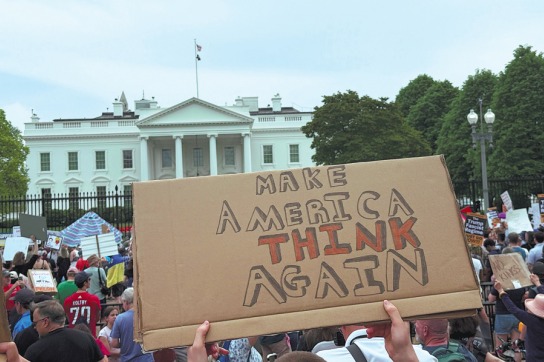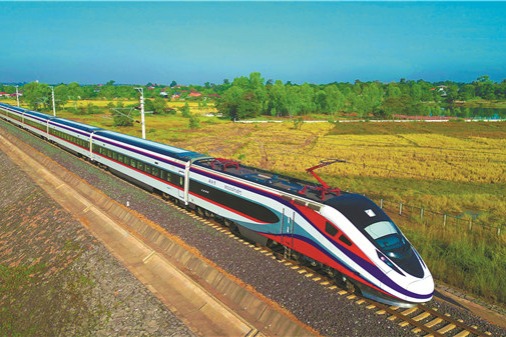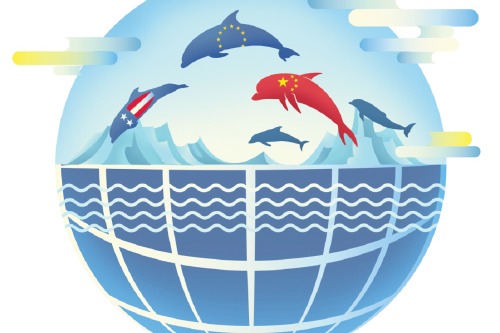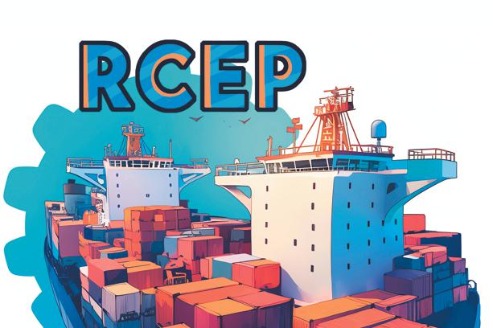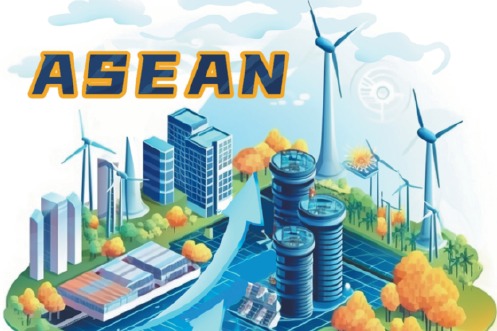Principled pushback


The US' tariff war is unleashing the clout of the Global South
While the world is still reeling from the throes of uncertainties induced by the United States' intimidation-laced "reciprocal tariffs", the 70-year-old Bandung Spirit seems to have been placed on the back burner.
Yet the postcolonial aspirations across the emerging economies and developing countries that forged the Bandung Spirit still remain largely unfulfilled in contemporary global governance.
The expansive growth of the "BRICS Plus "rekindles a glimpse of hopes across the Global South in the relentless pursuit of its legitimate representation and developmental priorities in global governance. With the inclusion of more developing countries into its fold, the grouping provides a platform for South-South cooperation at an unprecedented opportune time as the world order evolves into multipolarity.
While endeavoring to unshackle the emerging economies from the conventional stranglehold of economic subjugation and continuous plundering by the proxies of the collective West, the World Trade Organization is no longer the effective custodian upholding the "rules-based" global trading system.
The US' long-arm jurisdiction has usurped the legitimate right of all nation states to trade with countries deemed "unfriendly" by Washington, paying no regard to the fundamental principles of the United Nations Charter. Breach of sovereignty and territorial integrity of member states under the watch of the UN is no rarity. Time and again, the aggression turns out to be the proverbial "elephant in the room".The prevailing feeble global governance is no deterrent to any foreign intervention or interference in the internal affairs of small nation states. Military pacts and deployment of troops on foreign soil continue to dominate the global scene in the name of the dominant powers providing a security shield.
The aspirations of the global majority, as underscored in the Bandung Conference in Indonesia 70 years ago, remain a concerted voice disdained by the US-led West. Similarly, the BRICS bloc is billed as a mere motley grouping of anti-West developing countries that have diverse aspirations and priorities.
BRICS' significance only began to warrant the attention of Washington when the call for ditching the US dollar in cross-border trade transaction settlement gained traction and attention. While there is yet to be a single BRICS currency, more countries in the Global South have been resorting to the use of local currency in the settlement of transaction payments, averting from falling prey to the debt distress induced by the US currency appreciation.
In this context, the New Development Bank headquartered in Shanghai presents a viable alternative to the World Bank and the International Monetary Fund in addressing the developmental priorities of Global South countries. Its local currency lending portfolio has been proven to be a timely boon to those in need of local currency finance. The growth of this portfolio from 22 percent of its total lending as of Q1,2023, to 30 percent of total lending by 2026 is in itself a clear manifestation of the prevailing need for development funds in local currency across the Global South.
For decades, developing countries were not able to borrow in their local currencies on reasonable terms, as their currencies have consistently been deemed less trustworthy by international investors, thus resulting in 70 percent to 85 percent of the debt of the emerging economies and low-income countries being dominated in foreign currencies. In many instances, this has rendered the debtor nations' capacity to service the loans hamstrung or exposed to liquidity risks.
While the dilution of US dollar dominance in international lending is underway under the leadership of BRICS, the US' unveiled threat of imposing 100 percent tariff on BRICS countries which seek to settle their trans-border trade transaction payments with local currency came as a coercive intimidation to the developing world. This has been on the cards long before the US government declared its "reciprocal tariff" war against the world.
The US' capricious and incoherent tariff moves announced on its self-proclaimed "Liberation Day" have thrown the world into disarray with uncertainties reminiscent of the Great Depression in the 1930s. It is set to spell trouble for all nations, subject to both high and low tariff tier alike, and will ultimately weigh heavily on global trade. It has set a bad precedent whereby a country can take the liberty to trade on its own terms, purportedly for the sake of arresting trade deficits by imposing tariffs unilaterally country by country, without any regard to the WTO's regulatory role.
Southeast Asia is conspicuously the key region in the US' crosshairs. Henceforth, It will understandably be one of the economies worst hit by the US' tariffs. Some small economies in the Association of Southeast Asian Nations, such as Cambodia, Laos and Myanmar, are absolutely vulnerable if left to negotiate bilaterally with the US in the next 90 days during the "reciprocal tariff "pause.
Amid the helter-skelter wielding of tariffs, even the pre-emptive offer of zero or low tariffs for the US products entering the Southeast Asian emerging markets offers no solution to tamper with the US administration's debilitating tariff charge.
From the ASEAN perspective, in light of the US being one of its key sources of investments and the main destination for its products, its non-confrontational stance of not resorting to retaliatory tariffs is very much anticipated. While voicing its collective intent to seek a "frank and constructive dialogue" with Washington to address the trade-related concerns, the tariff negotiation engagement may still remain bilateral ultimately, leaving individual member states with no collective bargaining strength to leverage. This will further expose ASEAN to the wedge-driving of the reigning hegemony.
Be that as it may, ASEAN can still endeavor to leverage intra-ASEAN trade alongside the new unconventional markets across the Global South in the interest of promoting South-South cooperation.
Indeed, the "BRICS Plus" grouping, representing the Global South, is now a growing bloc, which represents nearly 50 percent of the world's population, one-fifth of the global trade and approximately 30 percent of the global GDP in nominal exchange terms. Its vast potential is yet to be unleashed.
In this context, the thriving ASEAN makes a perfect development partner for "BRICS Plus". Only when the augmented entity rises to the challenges with one strong voice and concerted action, will the collective interest of Global South be proudly manifested in the spirit of the Bandung Conference.
The author is president of the Belt and Road Initiative Caucus for Asia Pacific. The author contributed this article to China Watch, a think tank powered by China Daily. The views do not necessarily reflect those of China Daily.
Contact the editor at editor@chinawatch.cn.





















